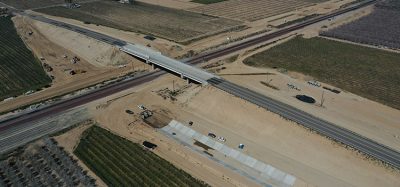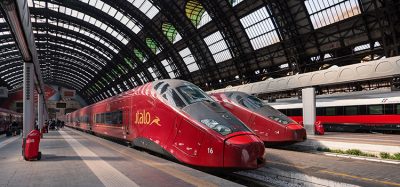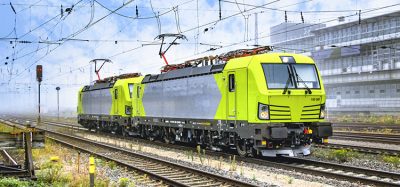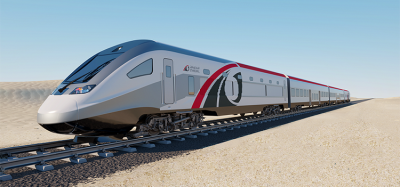意大利的高速发展和自由化
发布:2010年8月3日| |还没有评论
FS集团(意大利国家铁路公司)是意大利最大的公司,它帮助促进了国家的增长,这也得益于最近推出的高铁服务。集团成功地完成了内部重组,使其成为一个现代化和高效的现实,与时俱进,准备好迎接铁路运输自由化的挑战。在不到三年的时间里,通过财务上的好转、高速铁路服务的启动和车队更新,完成了彻底的转型。让我们逐条分析事实。
FS集团(意大利国家铁路公司)是意大利最大的公司,它帮助促进了国家的增长,这也得益于最近推出的高铁服务。集团成功地完成了内部重组,使其成为一个现代化和高效的现实,与时俱进,准备好迎接铁路运输自由化的挑战。在不到三年的时间里,通过财务上的好转、高速铁路服务的启动和车队更新,完成了彻底的转型。让我们逐条分析事实。
FS集团(意大利国家铁路公司)是意大利最大的公司,它帮助促进了国家的增长,这也得益于最近推出的高铁服务。集团成功地完成了内部重组,使其成为一个现代化和高效的现实,与时俱进,准备好迎接铁路运输自由化的挑战。在不到三年的时间里,通过财务上的好转、高速铁路服务的启动和车队更新,完成了彻底的转型。让我们逐条分析事实。2009年,FS集团以4400万欧元的净收入巩固了2006年底开始的财务好转,引进了新的管理团队,由Mauro Moretti先生领导,他最近再次确认执掌集团。该集团在2008年恢复盈利,比预期提前一年,净收入为1600万欧元。2009年的业绩是在外部环境非常不利的情况下取得的,受全球金融危机的影响,特别是在货运方面,客运量和收入都受到了挤压。但这仍然是一个巨大的成功,如果与它的主要欧洲竞争对手的财务表现相比,这就更加重要了,后者的业绩严重下滑。无论如何,2009年都将成为意大利历史上高速高容量的都灵-米兰-罗马-那不勒斯-萨莱诺铁路系统全部竣工的一年,这是一个彻底改变了意大利交通的网络。事实上,“意大利高速大都市”在1000公里的专用轨道上运行(在超过16600公里的总网络中),这使得服务专业化,减轻了现有线路的压力,有利于整个铁路系统,包括城市、地区和货运运输。直达全国最重要的城市中心,覆盖65%的交通需求集中的地区,高铁服务将天平重新倾斜给了轨道交通,这是众所周知的最环保的交通方式。高速铁路极大地改变了主要城市中心之间的交通,增加了更频繁的定期连接,事实上,它促进了意大利的社会、经济和文化生活。罗马和米兰之间每天有70列火车,这一高速服务赢得了飞机的挑战,吸引了超过50%每天往返于这两个大都市之间的旅客。Frecciarossa快速列车(罗马-米兰,中途不停车)从罗马蒂布尔蒂纳到米兰罗戈多多的距离需要2小时45分钟,并陪同乘客直达市中心。 They also offer a number of extra services such as welcome drinks, free newspapers and high-quality catering.


那不勒斯“商店”里的Frecciarossa
意大利高速铁路的成功还得益于真正具有竞争力的旅行时间:从博洛尼亚到佛罗伦萨需要37分钟,穿越亚平宁山脉;从博洛尼亚到米兰需要65分钟,从都灵到意大利半岛的金融之都米兰需要一个小时。考虑到Frecciarossa列车的高度舒适度,所有的一切都是完全放松的:更大的躺椅,腿部空间更大,并提供了礼灯,一个音频插座和连接电脑的电源。与此同时,也开通了通往东北部、南部和西南部的其他快速线路,其中Frecciargento列车可到达威尼斯、维罗纳、博尔扎诺、巴里和拉米蒂亚特姆。由于意大利铁路公司的各种促销活动,现在每个人都能享受到意大利高速列车提供的豪华旅程。2010年前6个月,Frecciarossa和Frecciargento的机票销量达到了创纪录的水平:仅罗马-米兰航线就售出了近900万张机票,比2009年高出22%,而2009年的月平均客运量已经达到了100万人次。米兰-那不勒斯段的增长率实际上达到了31%。安全和准点率也在不断提高。事实上,由于在自动化方面的投资,新的高性能技术已经使安全领域不断取得进展。其结果是,在过去20年里,“典型”事故的数量一直在下降,2006年至2009年期间,事故率下降了63%。 Punctuality and Customer Satisfaction are on the rise: 93.4% of passengers say they are happy with the high-speed service, whilst the appreciation figure rises to 95.3% for the ‘fast high-speed’ service. In March 2010, 82% of those interviewed judged punctuality performance to be positive – which was up 12% on January 2010. At the moment, the State Railways Group (Gruppo Ferrovie dello Stato) transports approximately 600 million people a year, of which a million and a half every month are on the high-speed service alone and is also working on developing new nigh-speed stations at Turin Porta Susa, Bologna, Florence, Rome Tiburtina and Naples Afragola. With a view to raising quality standards even further, FS has launched an international tender worth more than €1.2 billion for the supply of 50 new design high-speed trains, which has triggered interest from the most important constructors throughout the world. The competitors have been asked to run the train at a speed of 360km/h, ensuring transmission of the same forces and acceleration that take place at 300km/h. “Our train will be the train of the future, the finest and most modern on the market, with exceptional characteristics, capable of outclassing even the ultra high-tech Japanese trains, which are the best at the moment, six years ahead of everyone else,” stated Mr. Moretti. “The new high-speed train will be able to exceed 400km/h and will travel on our network at 360km/h.” In fact, in view of the liberalisation of the rail system, with the new super-train, FS aims not only to renew the Italian fleet in order to contend with future internal competition, but also to face European competition. And in anticipation of the opening of frontiers, the FS Group has also on several occasions expressed an interest in remunerative market services outside Italy as well. And it is for this reason that the Ferrovie dello Stato has even more challenging objectives ahead: on the assumption that there is an underlying system of rules that are certain and equal for everyone, the FS Group is ready to grow in national and international terms, contributing with its experience and infrastructures and accepting the challenge of competition that is no longer just national but is already continental.


米兰-博洛尼线上波河上的电缆桥
事实上,作为欧洲铁路共同体(CER)主席,莫雷蒂先生强调了在欧洲建立一个真正自由的铁路市场的困难。这些国家的自由化程度不同,互惠原则并不总是适用于所有人。莫雷蒂先生在欧洲铁路公司首席执行官第十次会议上表示:“在铁路公司的账目中,公共服务义务应该与商业服务完全分开。”“这将避免个别国家为公共义务支付的数额之间的不平衡,以及不同公司之间财务能力的差异。”总而言之,意大利的高速铁路服务代表了这个国家的一个重大转折点,这一点并不夸张——自二战结束以来,意大利还没有经历过如此决定性的变化。环境影响方面的贡献也是巨大的。事实上,随着都灵-萨莱诺高铁服务的启动,2009年的旅客平均增加了大约25%,而罗马和米兰之间的火车市场份额从36%上升到50%。将这些百分比转化为生态可持续性,仅在2009年就相当于减少了3万吨以上的二氧化碳排放。事实上,在米兰到罗马的线路上,Frecciarossa列车平均比飞机少排放72%的二氧化碳,比汽车少排放60%。2010年7月2日,在布鲁塞尔举行的欧洲商业峰会(由欧洲商业联盟和欧洲雇主联合会每年组织一次)上,莫雷蒂先生在讨论铁路领域的节能问题时指出,生态可持续性一直是Ferrovie della Stato政策的一部分,集团高度致力于能源“脱碳”政策。 In fact, the train is the most environmentally friendly means of transport, particularly when compared to flying. In addition, Mr. Moretti also pointed out that, in the last 20 years, more than 1,600km of lines were converted from diesel to electric, thereby confirming that, thanks to the FS policy, Italy is today one of the most developed countries in Europe in terms of network electrification. It is precisely due to electricity that the train is the only means of motorised transport that can reduce dependence on fossil fuel to a minimum. For this reason, within a framework of sustainable development, more than 30% of energy used by the FS Group today comes from renewable sources. And the use of photovoltaic cells has provided a further impetus to full independence from fossil fuel energy. Mr. Moretti has illustrated how these objectives, aimed at eco-sustainability, also touch on the design of rail infrastructure, through a rational use of resources and environmental protection approach. On that occasion, Mr. Moretti has also mentioned the so-called ‘Green Ticket’ recently introduced to inform passengers on the level (expressed in kilos) of CO2 savings for their train journey compared to plane or car travel. The CO2 emissions avoided are converted into ‘Green Points’ so that each passenger can store and use to get either free train tickets or giveaways by Trenitalia. With such an initiative, not inexpensive for the company, FS wants to contribute to a general process of cultural and behavioural change towards higher environmental awareness and a low carbon economy.
关于作者
毛罗·莫雷蒂
Mauro Moretti自2006年9月起担任Ferrovie della Stato集团的首席执行官,并于2009年1月成为CER(欧洲铁路和基础设施公司共同体)的主席,也是UIC(国际联盟des Chemins de Fer)的副总裁和UIC欧洲管理委员会的副主席。2004年以来,他还担任CIFI(意大利铁路工程师协会)主席。2010年5月底,莫雷蒂被意大利总统乔治·纳波利塔诺(Giorgio Napolitano)授予“lavoro骑士”(Cavaliere del lavoro)称号。莫雷蒂先生的职业生涯始于1977年在博洛尼亚大学(Bologna University)获得电气技术工程学位,同年,他赢得了Azienda Autonoma Ferrovie dello Stato的一个行政职位的公开竞争。他只有24岁。







